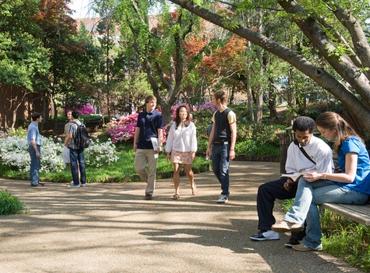
Interdisciplinarity is a defining characteristic of studies within our six schools
The College’s six schools offer unique interdisciplinary academic programs and conduct cutting edge interdisciplinary research integrating learning opportunities from disciplines both across the College and across Georgia Tech including computing, engineering, design, business, and science.
All six schools offer Bachelor of Science (B.S.) degrees, Master of Science (M.S.) degrees, and Doctor of Philosophy (Ph.D.) programs with the exception of Modern Languages, which does not offer a Ph.D. degree. There is also an extensive choice of minors and certificates.
Also housed within the College of Liberal Arts are Georgia Tech’s distinguished Reserve Officers' Training Corps.
School of Economics
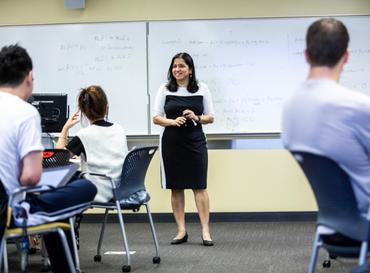
Economics in the Ivan Allen College of Liberal Arts blends rigorous analytical and quantitative skills. We place our graduates in a wide range of private, public, and non-profit employment contexts with a common emphasis on decision-making. We provide the analytical framework and data analysis tools essential to good decision making in any organizational context.
School of History and Sociology
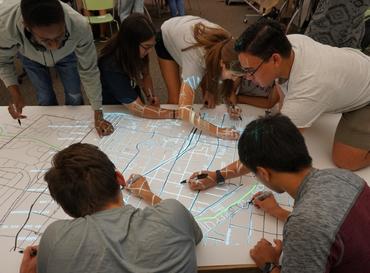
History and Sociology brings the perspective of the social sciences to bear on critical issues facing the modern world, while providing a source of analysis that emphasizes both change over time and cultural comparisons on an international scale. The School is distinctive in its focus on the social origins and impact of industry, science, and technology and offers the tools students need to understand the complex issues related to the development of contemporary communities.
School of Literature, Media, and Communication
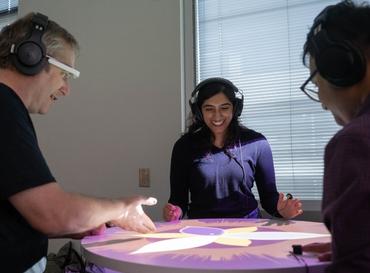
Literature, Media, and Communication (LMC) defines new models of intellectual inquiry and practice that bring diverse humanistic perspectives to bear on technological invention and innovation. LMC researches and teaches the ways the humanities shape and are shaped by science and technology. Faculty and students assess and inform technological and scientific change by creating, analyzing, and critiquing a broad range of media forms and cultural practices.
School of Modern Languages
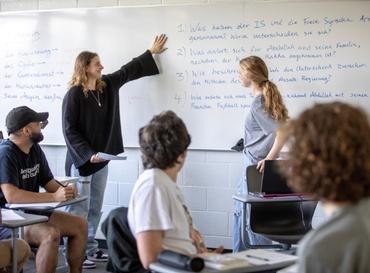
Modern Languages prepares well-rounded professionals with language skills and informed knowledge of other cultures for service in the global workforce and today’s multicultural societies. Our faculty are highly-qualified professionals specialized in cultivating advanced language skills and negotiating intercultural interactions. We educate students for careers in business, government and non-profits involved in myriad aspects of the global marketplace.
School of Public Policy
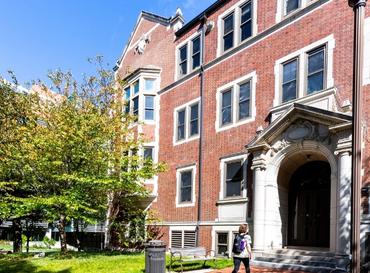
Ranked #2 in information and communications technologies and 45th overall in public policy/public affairs by U.S. News and World Report, the School of Public Policy is a global leader in foundational knowledge, policies and governance of the scientific and engineering ecosystem ranging from energy and environment, information and communications technologies, cybersecurity, transportation, biotechnology and health, science and engineering ethics, regional and urban economic development, workforce and education policy, innovation and entrepreneurship.
The Sam Nunn School of International Affairs
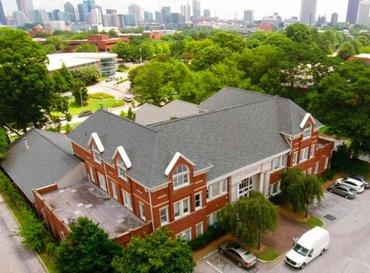
The Sam Nunn School of International Affairs explores the forces that shape our world through interdisciplinary degree programs, policy-relevant research with a strong theoretical foundation, hands-on fieldwork, and interaction with practitioners. Set within Georgia Tech the school draws on the example of former U.S. Senator Sam Nunn to integrate and understand technology, policy and international affairs.

